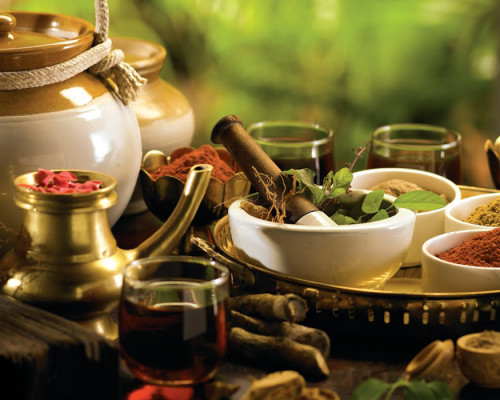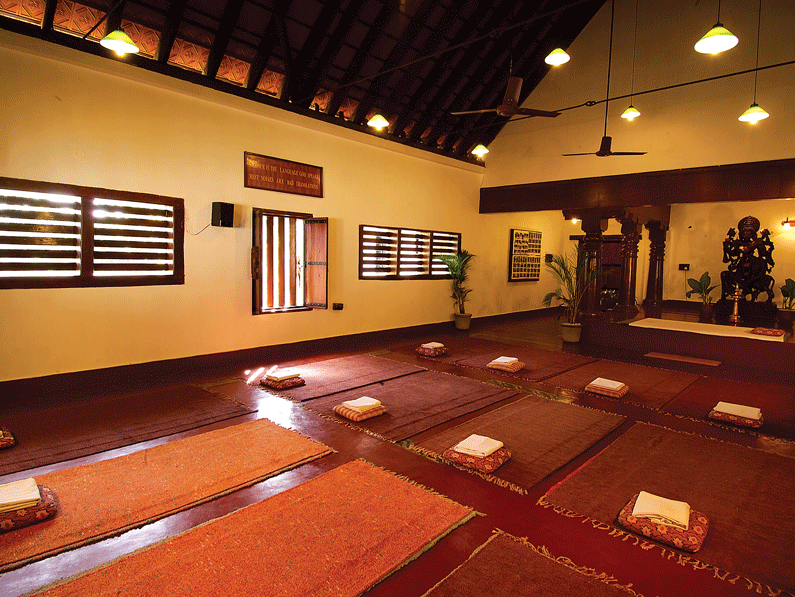Ayurveda is one of the world’s oldest healing sciences, which promotes the conscience of living happily and healthily through natural remedies.
It is a holistic (whole-body) approach to human health. It helps people to learn about the harmful and useful ways of life, happy and depressed life, in a way the very nature of life. It improves health and natural beauty and provides remedies for common ailments as well as serious health problems. Ayurvedic medicine is given in the form of traditional herbs and compounds, diet, exercise, and lifestyle recommendations. Originated in India, it has more than 5000 years of History. The name “Ayurveda” originates from Sanskrit language Ayur meaning – life, and Veda meaning – science. In other words Ayurveda is the science of life. It is based on the vital fundamental principle that health is the natural state as long as one’s body and mind are in harmony with environment. The outcome of disharmony is disease. Ayurveda differs from other health care treatments and it plays important role in prevention of root cause rather than dealing with symptoms. Ayurveda concentrates on food as our herbal, along with yoga, meditation which also includes the cleansing, rejuvenation and detoxification of both body and mind. It has eight ways to diagnose illness, called Nadi, Mootra, Mala, Jihva, Shabda, Sparsha, Druk, and Aakruti. Other than roots, leaves, fruits, bark, or seeds such as cardamom and cinnamon are used in plant based treatments in Ayurveda. It was first recorded in the Veda, the world’s oldest and existing literature. The three most important Veda texts containing the original and complete knowledge of Ayurveda over 1200 years old and is still in use today. Ayurveda is considered as the one of the few systems of medicine developed in ancient times and that is still widely practiced in modern times.











